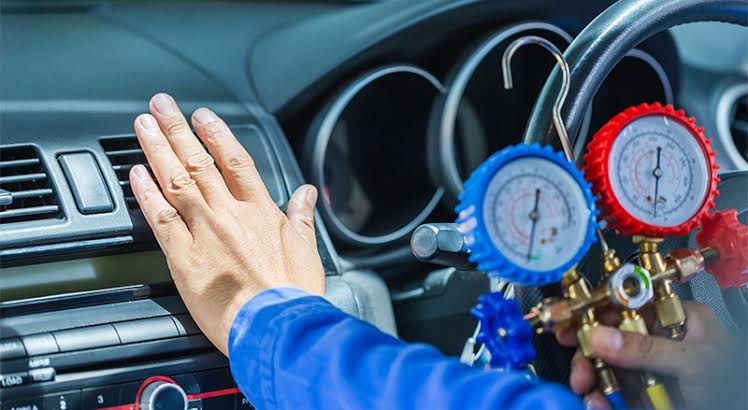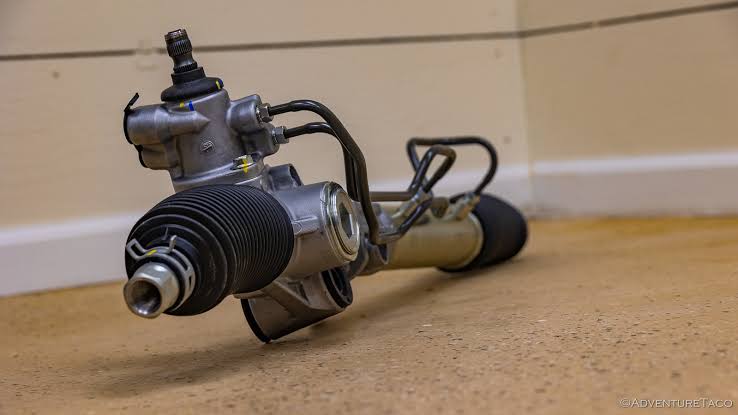Does Using the Air Conditioner Waste Gas?

One of the most common questions among drivers is, “Does using the air conditioner waste gas?” The short answer is yes, it does. Running your car’s air conditioning (AC) system places additional demand on the engine, which leads to increased fuel consumption. However, the amount of gas wasted depends on various factors such as your car type, driving speed, and how often you use the AC. In this blog, we’ll explore how air conditioning affects gas usage, how much it wastes, and tips to use it efficiently without sacrificing fuel economy.
How Does the Air Conditioner Work?
The Basics of a Car’s AC System
The air conditioning system in your car operates by using a compressor, which is powered by the engine. When you turn on the AC, the compressor engages and draws power from the engine to cool the cabin air.
Key Components:
- Compressor: Compresses refrigerant gas into a high-pressure liquid.
- Condenser: Dissipates heat from the refrigerant.
- Evaporator: Absorbs heat from the car’s cabin to produce cool air.
Because the compressor is driven by the engine, using the AC increases the engine’s workload, which in turn consumes more gas.
Does Running the AC Waste a Lot of Gas?
Yes, It Does Use Gas
While the amount of gas used by the AC is generally not extreme, it can still significantly affect fuel efficiency under certain conditions. Estimates suggest that running the AC can decrease your fuel economy by 5% to 20%, depending on factors like outside temperature, driving habits, and vehicle size.
Factors That Influence Gas Usage:
- Driving Speed:
- Low Speeds: The AC has a greater impact on gas consumption when driving in city traffic or at low speeds.
- High Speeds: At highway speeds, the engine operates more efficiently, and the additional load from the AC has less of an impact.
- Outside Temperature:
- On very hot days, the AC works harder to cool the cabin, using more energy and wasting more gas.
- Vehicle Type:
- Smaller cars or vehicles with smaller engines may experience a larger drop in fuel efficiency.
- Hybrid and electric vehicles rely on batteries for AC operation, reducing gas consumption.
How Much Gas Does the AC Use?
The exact amount of gas wasted by running the AC varies, but studies estimate that a typical car may use an extra 0.2 to 0.5 gallons per hour of gas when the AC is in use. This can add up significantly over time, especially during hot weather or long drives.
Air Conditioner vs. Open Windows: Which Wastes More Gas?
AC vs. Open Windows
While turning off the AC and rolling down the windows might seem like a good way to save gas, it’s not always the best choice.
- At Low Speeds: Driving with windows down is generally more fuel-efficient, as there is minimal aerodynamic drag.
- At High Speeds: Open windows create drag that reduces fuel efficiency, often offsetting any gas savings from turning off the AC.
Best Practice:
- Use the AC at highway speeds.
- Roll down the windows at lower speeds or in stop-and-go traffic.
Tips to Reduce Gas Waste from Using the AC
1. Use the AC Sparingly
Only turn on the AC when necessary. If the weather is mild, consider using the fan or rolling down the windows instead.
2. Park Smart
Park in the shade or use a sunshade to keep your car cooler and reduce the need for AC.
3. Pre-Ventilate the Cabin
Before turning on the AC, roll down the windows for a few minutes to let the hot air escape.
4. Use Recirculation Mode
Set your AC to recirculate the cabin air rather than pulling in hot air from outside. This reduces the workload on the system.
5. Maintain the AC System
Regularly check and service your car’s AC system to ensure it operates efficiently.
Frequently Asked Questions
1. Does turning off the AC improve fuel economy?
Yes, turning off the AC reduces the load on the engine, improving fuel economy. However, the improvement depends on factors like driving conditions and vehicle type.
2. Does the type of car affect how much gas the AC uses?
Yes, smaller cars and those with smaller engines often see a greater reduction in fuel economy when using the AC compared to larger vehicles.
3. Is it better to use AC or roll down the windows?
It depends on your driving speed. At low speeds, rolling down the windows saves more gas. At high speeds, using the AC is more efficient due to reduced aerodynamic drag.
4. Does AC use more gas in hot weather?
Yes, in hot weather, the AC works harder to cool the cabin, leading to increased gas consumption.
5. Does using the AC affect hybrid or electric cars?
For hybrid and electric cars, the AC runs on the vehicle’s battery system, so it doesn’t directly consume gas. However, it can reduce the battery’s range.
Conclusion
Using the air conditioner does waste gas, but the amount depends on your driving habits, vehicle type, and external conditions. While it’s impossible to avoid AC usage entirely—especially during hot weather—there are ways to use it more efficiently.
By following the tips outlined above, you can stay cool and comfortable while minimizing the impact on your fuel economy. Balancing comfort and efficiency is the key to getting the most out of your car’s AC system.
Also Check:
• Does Turning On the AC Waste Gas?





